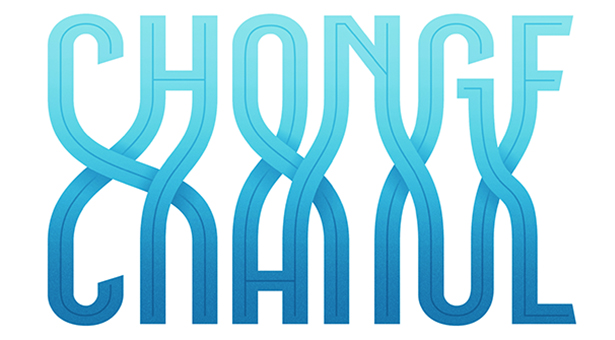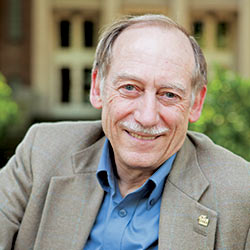Word Play What's in a Word
We don't know about you, but we love to learn about words — their meanings, their origins, how to use them in conversation. In each issue of Response, we ask a campus expert to explore a word related to the magazine's theme.

Change (chanj), vt. From the Latin
cambire, to exchange, barter.
By Bill Woodward, Professor of History | Illustration by Steven Bonner

Years ago I rafted Idaho’s Salmon River. But I only experienced a stretch of those on rushing waters. The river flowed down to our put-in place, and continued on when we climbed out.
History is like that.
History is a flow, not a collection of isolated moments. It’s the record of relentless change. We historians recount particular events as part of an ever-developing story. Through adventuresome rapids and seasons of slack water, history rolls on.
To study history is to grasp the constant changes in human experience. To study the past illuminates our present, and also — projecting the flow downstream — our future.
For example, we may think that social media are new. But then we look back upstream, to the 1700s, and marvel how “social networks” of travelers and postal systems built a transatlantic web of knowledge, commerce, science, and faith. Thus John Wesley could go to the new Georgia colony and meet a Moravian émigré who told of European revivals, which Wesley could then report back to England. This early “World Wide Web” made possible at least two transforming movements: the Scientific Revolution and the great spiritual revivals ignited in Europe and America.
Grasping yesterday’s change sheds light on today. It unshackles us from a presentism that falsely deems our own moment unique. That is, it grants us perspective, and even humility, about ourselves.
And, for the Christian, it adds hope to that sobering humility. Change has come. Change can come as we serve our King. Change will come, when God’s kingdom comes in fullness.
History allows us to hope because the gospel of Jesus Christ transforms lives and transforms history.
When informed by history, the liberal arts become the liberating arts, allowing us to transcend our own time and place to see our work in the context of God’s work — the faithful God who has acted in the past and will act in the future.
God’s faithfulness — now that’s something that does not change.
